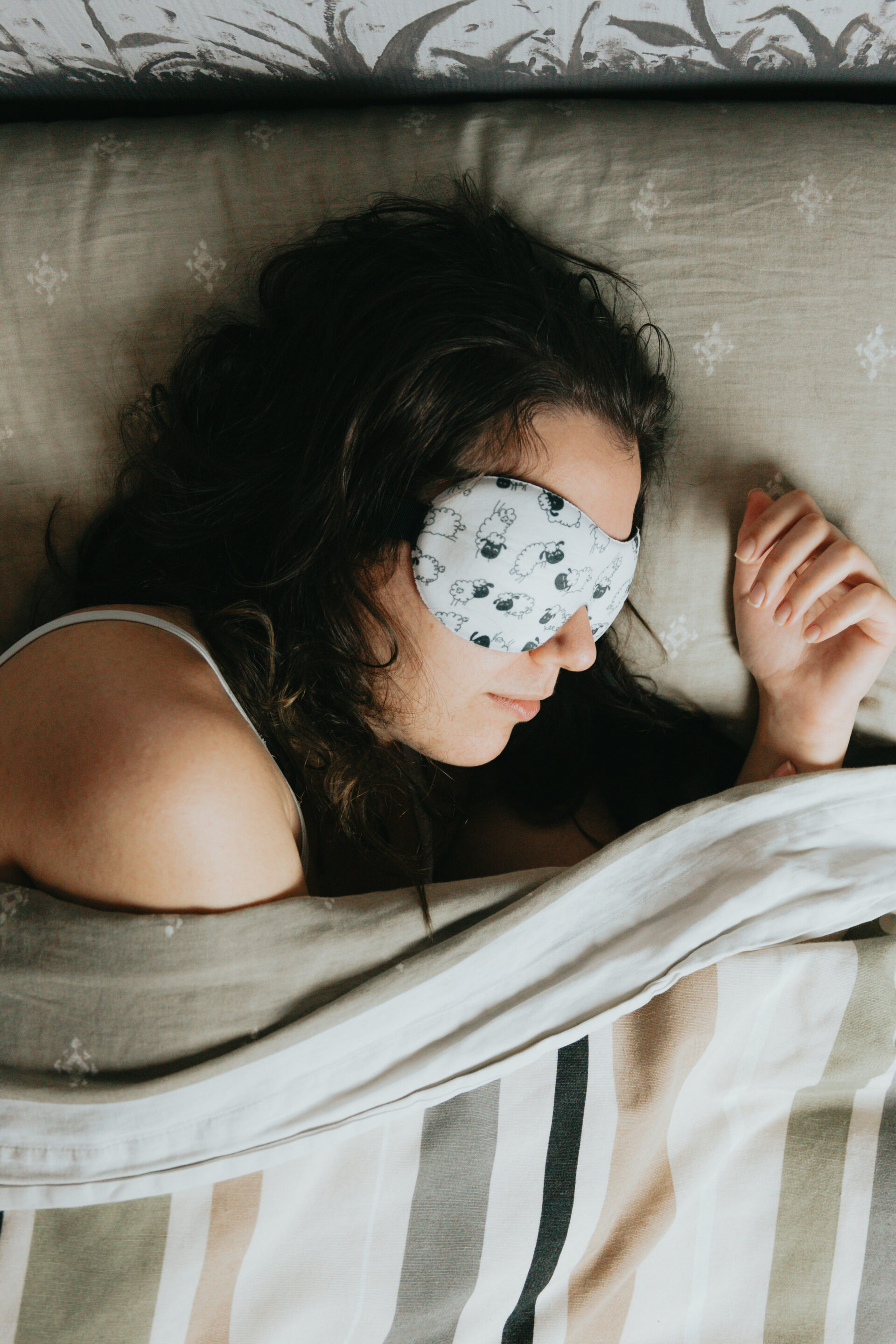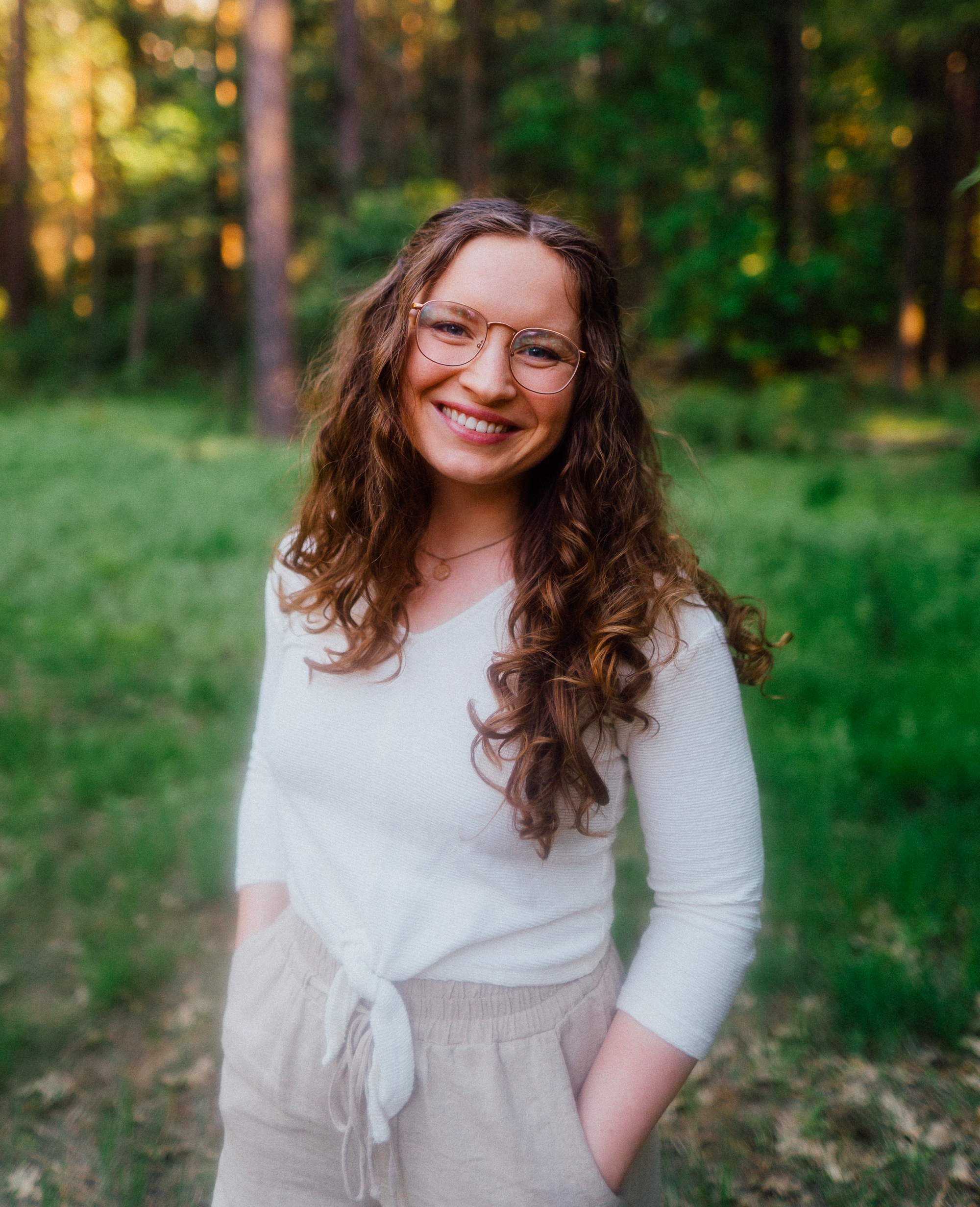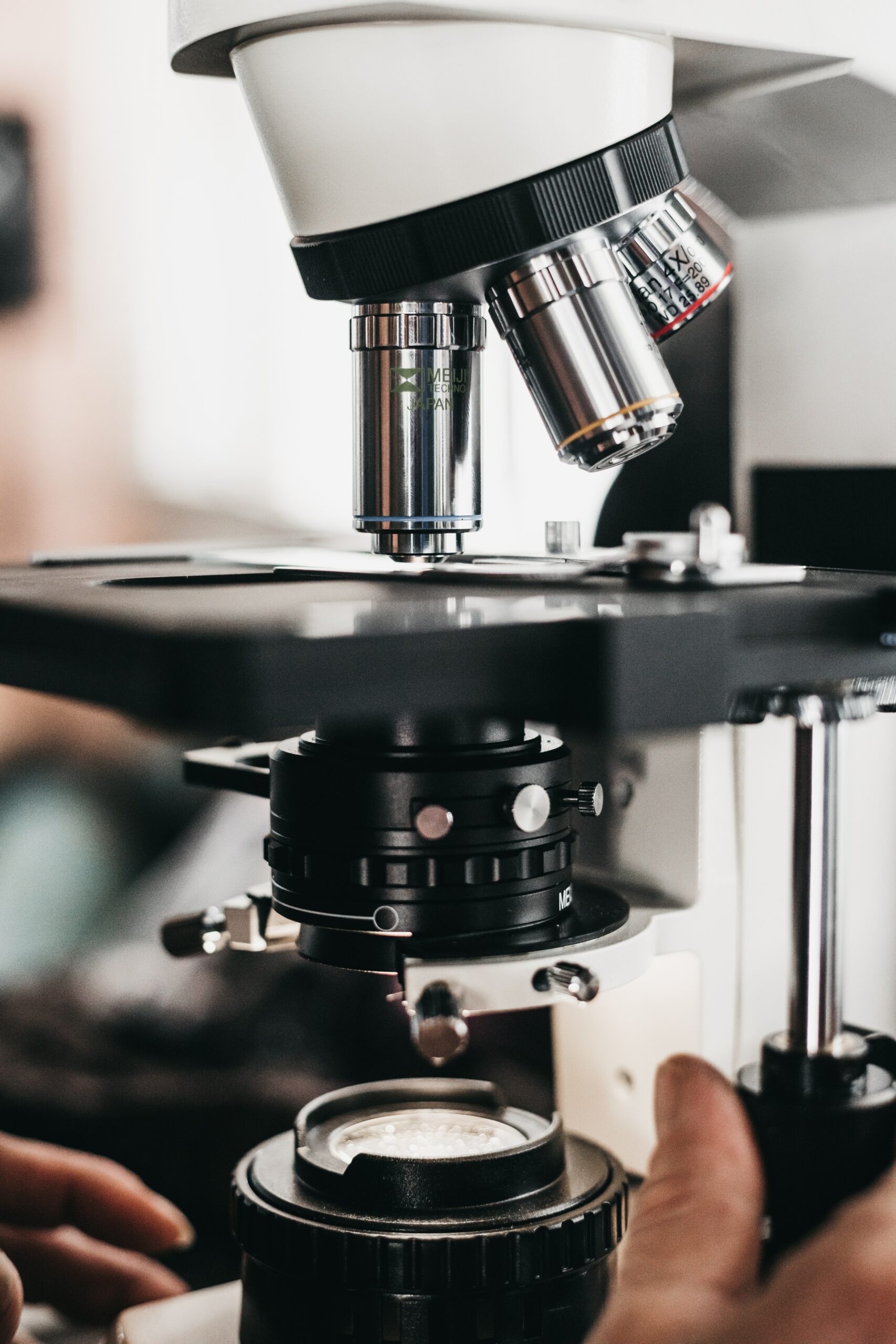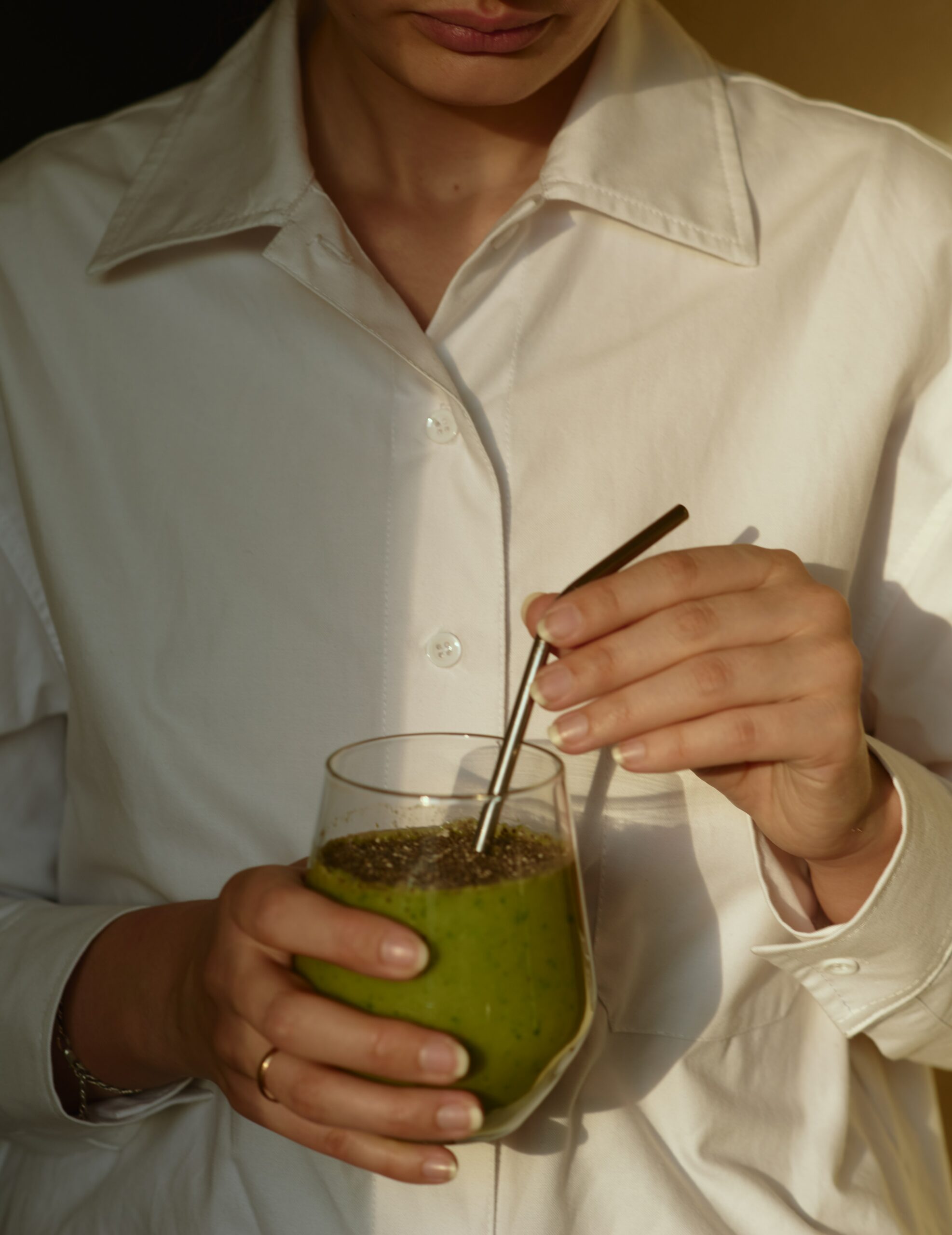You’re finally home after a long day, and all you want is to relax and get some much-needed rest… but suddenly, it’s 11 pm and you find yourself scrolling through Instagram posts, tossing and turning with your mind racing, unable to get the relief you’re desperately longing for. Sound familiar?
We’ve all been there, and it’s definitely no fun. But what’s even worse than the frustration is what a consistent lack of quality sleep does to your mind and body. So without further ado, here are 7 tips you can implement TONIGHT to get better quality sleep and wake up feeling refreshed!
1. design your ultimate cozy sleep nest.
Three factors that can affect sleep the most are temperature, sound, and light. Have you ever woken up from an obnoxious street light blinding you through your bedroom window? Do you lie awake at night, unable to sleep because every random house creak, car screech, or wind gust sounds deafening in the silence? Or perhaps you’ve ripped off your sweatshirt in the middle of the night because you felt like you were suffocating in the sweaty flames of the actual sun? (Maybe that’s a little dramatic, but you know what I mean.)
- TEMPERATURE
- According to science, humans sleep best when their environment is optimized. Keep your room cool (think winter cave vibes). Your internal temperature naturally decreases during sleep, and it’s important to support your body by keeping the temperature ideally between 65-70 degrees (or even cooler, if you prefer).
- SOUND
- Try turning on white noise (babies love it, and if you want to sleep like a baby, I recommend learning from these adorable tiny humans). I personally find that I sleep so much better when I turn on some form of white noise in the background, whether it’s the bathroom fan, a noise machine, or an app.
- LIGHT
- Melatonin, your natural sleep regulator, can be easily affected due to even the smallest light stimuli, so make sure any light source in your room is unplugged or covered. We started using blackout curtains in our room and it’s made a HUGE difference in how well we sleep! Again, winter cave vibes. Darkness is your friend.
2. Give yourself a screen time boundary.
Limiting screen time for at least an hour before bed helps you settle into a more relaxed state. Going a step further, many professionals recommend that you keep your phone in another room and/or turn on airplane mode. Shocking, I know.
It might seem like second nature to plug your phone in and keep it right next to your bed. And if you’re like many people, you might use it as your alarm clock in the morning. BUT… I recommend using an actual battery-powered alarm clock instead. When your phone is right next to your head it’s tempting to grab it at night (or right when you wake up). There’s nothing like a good old social media or email scroll to get your mind racing, heighten anxiety, and keep you awake at night. This can also impact your body in two ways:
- First of all, EMF (electromagnetic field) exposure radiates from your phone (and other devices and appliances we use daily), which some studies have shown can affect melatonin levels similarly to light, disrupting your natural sleep rhythms and thus causing other negative health effects.
- Secondly, it exposes you to blue light (aka the nemesis of good sleep) which triggers your brain to stay awake longer. You can combat this by turning on the warm filter on your phone at night, or using an app like f.lux on your computer. But ultimately it’s ideal to start and end your day in an intentional, screen-free way.
3. Reduce caffeine intake (especially in the afternoon).
Your cortisol levels slowly decrease as you approach bedtime, signaling your body that it’s time to sleep. However, caffeine interferes with this natural process as it works as a stimulant, creating more cortisol in your body. In small amounts, it’s just fine for most people (I LOVE me some coffee), but to help you sleep better, try cutting back on caffeine (especially in the afternoon) and see how you feel.
If you’re into the experience of making yourself a soothing drink, try switching to tea or matcha in the afternoon! I love matcha because it gives you the energy and focus of caffeine, but it also contains a compound called L-theanine, which works as a balancing agent as it promotes calm alertness while helping you avoid the jitters and crash that coffee might give you.
4. Create a dreamy wind-down routine.
What is your ideal end-of-the-day routine? Perhaps a face mask and a calming evening cup of tea? Snuggles with your pet while you read a chapter of your favorite book? A yoga session accompanied by relaxing music and candlelight? Curling up under a weighted blanket with your journal?
Whatever it is, make it a part of your evening to signal to your brain that it’s time to relax. An hour before bed, I like to dim the lights in my house to encourage my body to start producing more melatonin and prepare for a good night’s sleep. These small habits will not only help you ease stress and anxiety, which are some of the most harmful things for our bodies and minds, but also help you enjoy your evenings even more.
5. Evaluate your sleeping arrangement.
How’s your bed situation? If you’re sleeping on a 10-year-old creaky mattress with lumpy, stained pillows that have existed since the beginning of time, it might just be the perfect opportunity for an upgrade.
Did you know that pillows can be a huge source of allergens and irritation, since over the years they can build up with skin flakes, hair, body oils, and dust mites (ew, gross)? If you’re having trouble sleeping, wake up groggy with aches and pains, experience frequent headaches, or notice that your pillow doesn’t feel supportive, it’s probably a good time to replace your pillow. Same with your mattress! It’s important to find a nontoxic, supportive bed and pillow to properly support your spine and help you sleep your best. (We love Tuft & Needle!)
6. Make sure you’re prioritizing the most important hours.
I used to be so proud of the fact that I could sleep for 4-5 hours and function just fine the next day. I’d get the bare minimum of rest and say things like, “I’ll sleep when I’m dead.” Looking back I realize how ignorant I was. Sleep quality is essential, but quantity matters too!
Sleep deprivation has been linked to things like brain fog, memory loss, mood swings, weakened immunity, high blood pressure, diabetes, weight gain, heart disease, and more! It’s no joke — sleep is essential to life. Studies have shown that the brain actually “washes” itself of toxic waste in an essential process which only happens during sleep.
So these are some of the most important hours of the day! Your quality of life really is determined in a large sense by your sleep. For most adults, experts recommend getting between 7-9 hours consistently every night, to give your brain enough time to clear out toxins, create long-term memories, heal tissues, strengthen your immune system, and regulate hormones. It really is a magical process!
7. Follow a consistent healthy schedule.
Are you waking up at 5 am for work during the week and then sleeping in until 11 on the weekends? If so, it might be difficult for you to feel rested, as your body won’t be able to settle into a sleep-wake rhythm. Try to wake up within the same general time frame daily if possible.
Lastly, It can be difficult to pinpoint one thing as the source of sleeping issues, as humans are complex, interconnected beings, and many things might need to be adjusted in order to find more balance and rest. But the basics always hold true:
- MOVE: We were created to move. Move your body daily in any way you can — it makes all the difference!
- EAT: Our bodies thrive when we nourish them. Focus on eating real foods and your body will thank you!
- DRINK: Hydration is essential to our proper function. Drink plenty of mineral-rich liquids and you’ll feel like a new person!
- BE: Spend time in the sunshine and get outdoors when you can! Nature does wonders for the body and mind.
This might seem like a ton of information, especially if much of it is new to you, but never fear! You can always come back to this as a resource to use on your sleep journey. And even if you just start implementing ONE new thing every week, you’ll be on your way to better sleep and a more joyful, abundant life!
I’m here to help in any way I can! Let me know how I can support you in your journey. Sleep well, and sweet dreams!







0 Comments